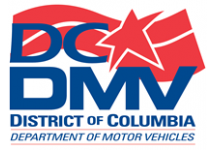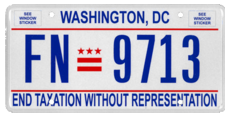Free Washington DC License Plate Lookup
Search and lookup any DC license plate and get a free vehicle report
The District of Columbia (DC), also known as Washington D.C., boasts a dynamic car market shaped by its urban landscape and affluent consumer base. With its compact size and emphasis on eco-friendly transportation, DC has seen a rise in demand for hybrid and electric vehicles. This trend aligns with the city’s initiatives for sustainability and reduced carbon emissions, making electric cars an attractive choice for many residents.
Navigating the car market in DC can be both exciting and challenging. The city’s diverse population and thriving economy contribute to a wide range of vehicle options, from luxury sedans to compact city cars. However, the high cost of living in DC can translate to higher prices for vehicles, especially in popular neighborhoods. Buyers should be prepared to negotiate and explore different financing options to secure the best deal.
To make informed decisions in DC’s car market, utilizing a reliable license plate lookup service is essential. Our DC license plate lookup tool provides comprehensive insights into a vehicle’s history, including past accidents, ownership records, and maintenance history. By leveraging this tool, buyers can assess the true value and condition of a vehicle, ensuring a smooth and satisfactory purchase experience.
Table of Contents:
- What information can you get from a District of Columbia license plate lookup?
- What is a District of Columbia license plate?
- How do I get a license plate in District of Columbia?
- Can I transfer my District of Columbia license plate to another vehicle?
- How can I find the owner of a license plate in District of Columbia?
- Can you look up vehicle records and history by VIN in District of Columbia?
District of Columbia DMV Contact:
 Phone: (202) 737-4404
Phone: (202) 737-4404
TTY: 711
See DC DMV Locations for hours of operation.
VinCheckPro provides a topnotch service for examining District of Columbia license plates, delivering comprehensive insights into registered vehicles within the area. This resource furnishes users with an extensive array of information, facilitating a thorough evaluation of a vehicle’s history prior to any transactions.
- Accidents or Damages: This crucial section covers any incidents affecting the vehicle, including collisions and damage from external factors like vandalism or fallen objects.
- Odometer Indications: Easily compare reported mileage against the actual odometer reading to ensure accuracy and uncover potential discrepancies.
- Recalls & Defects: Stay informed about any recalls or known defects associated with the specific make and model of the vehicle.
- Lien & Repossession Records: Understand if the vehicle has been used as collateral in a loan, helping you avoid financial entanglements.
- Theft & Recovery Records: Discover if the vehicle has been reported stolen and subsequently recovered, providing critical insight into its history.
- Flood, Hail, and Fire Damage: Learn about any damage resulting from natural disasters, which can have long-term implications for the vehicle’s integrity.
- Mileage Rollback: Guard against odometer fraud by verifying the reported mileage against historical records.
- Sale history, estimated ownership costs, and market value: This information provides valuable insights into the vehicle’s past, potential future expenses, and current market value.
- Vehicle Specifications: Ensure that all standard equipment, including body color and tires, align with the vehicle’s description.
- Previous Use: Identify if the vehicle has been utilized for personal, taxi, or police purposes, offering insight into its past usage.
- Service, Inspection, and Registration History: Gain a comprehensive overview of the vehicle’s maintenance and registration records, providing valuable context for its overall condition.
Our Washington DC license plate lookup service gives effortless access to comprehensive car reports, streamlining the process of purchasing a vehicle through well-informed decisions. Experience the reliability of our service today by requesting your personalized report and receiving it promptly!
 A District of Columbia license plate is a vehicle registration plate provided by the Washington, D.C. government, the capital of the United States. Often referred to as DC DMV tags or Washington DC vehicle tags, these plates are required for all cars, trucks, motorcycles, trailers, and other vehicles operating on the District’s roads.
A District of Columbia license plate is a vehicle registration plate provided by the Washington, D.C. government, the capital of the United States. Often referred to as DC DMV tags or Washington DC vehicle tags, these plates are required for all cars, trucks, motorcycles, trailers, and other vehicles operating on the District’s roads.
Besides the standard plates, there are various types of license plates available in the District of Columbia:
-
- Personalized – allows you to choose your own six characters, which can be any combination of letters, numbers, or spaces
- Disability – available for people with disabilities
- Membership Organization – for groups or institutions that identify the member’s affiliation
- Specialty Vehicle – used by drivers to show support for teams or causes, like Bicycle Awareness, Breast Cancer Awareness, and Washington Mystics
For more information, please contact the DC DMV at:
Phone: (202) 737-4404
TTY: 711
See DC DMV Locations for hours of operation.
To register your vehicle and get a DC license plate, you will need to provide the following documents:
- DC Driver’s License or Identification Card
- Proof of ownership (such as the vehicle’s title or registration from the previous state)
- Proof of DC residency
- Vehicle inspection certificate
- Proof of insurance
- Payment for registration fees and any applicable taxes
- The fees for registering a vehicle in the District of Columbia vary based on several factors, including the vehicle’s weight, model year, and intended use. Additionally, there may be additional fees for specialized license plates or other services.
Once you have all the required documents and fees, you can go to your local DC Department of Motor Vehicles (DMV) service center to finish the registration process. The DMV will give you a temporary registration card and license plate while your permanent plate is being processed and sent to you. Remember, DC law mandates that license plates be displayed on both the front and rear of the vehicle, securely fastened and visible from at least 50 feet during daylight.
For more information about obtaining license plates and completing vehicle registrations in the District of Columbia, contact:
General Vehicle Registration Address
DC Department of Motor Vehicles (DMV)
P.O. Box 90120
Washington, DC 20090
Service Center Locations
Southwest Service Center
95 M Street SW
Washington, DC 20024
Rhode Island Service Center
2350 Washington Place NE
Suite 112N
Washington, DC 20018
Inspection Station
1001 Half Street SW
Washington, DC 20024
Yes, you can transfer DC license plates from one vehicle to another, provided both vehicles are owned by the same person. However, expired tags cannot be transferred.
To transfer your tags, you will need to visit a DC DMV service center with the necessary documents for the vehicle to which the tags are being transferred:
- Current vehicle registration
- Current vehicle title
- A valid vehicle inspection
- A valid DC vehicle insurance policy
- A valid DC DMV driver’s license or learner permit
To find the owner of a DC license plate, reach out to the District of Columbia Department of Motor Vehicles (DMV). You can either call their customer service line at (202) 737-4404 or visit one of their service centers in person.
You will need to provide the license plate number and a valid reason for your request. Keep in mind that the DMV cannot disclose the personal information of vehicle owners unless it is for legal or law enforcement purposes.
Absolutely, you can check a vehicle’s history by VIN in the District of Columbia using services like VinCheckPro.com. These services offer vehicle history reports that cover title history, accidents, recalls, mileage records, and more. It’s a crucial step when purchasing a used car, as it ensures you have all the important information about the car’s past. This helps you make an informed decision and avoid any potential issues. District of Columbia VIN checks provide essential details about a vehicle’s background, allowing you to assess its overall condition and reliability.
To verify the status of your car title in Washington DC, you can follow these steps:
- Visit the DC DMV Website: Go to the official website of the District of Columbia Department of Motor Vehicles (DC DMV) at https://dmv.dc.gov/.
- Access Online Services: Look for an “Online Services” or “Vehicle Services” section on the website’s homepage.
- Log In or Create an Account: If you have an existing account, log in using your credentials. If not, you may need to create an account with the DC DMV.
- Select the Title Check Service: Once logged in, navigate to the “Title Check” or “Title Status” service. This service allows you to check the status of your car title.
- Enter Required Information: Provide the necessary information, such as your vehicle’s identification number (VIN), your personal details, and any other requested information.
- Submit Your Request: After entering the required information, submit your request to check the title status.
- Review the Results: The system will provide you with the current status of your car title. You should be able to see whether the title is in your name, if there are any liens or holds on the title, and if it’s clear and transferable.
- Contact DC DMV if Needed: If you encounter any issues or have specific questions about your car title, you can contact the DC DMV directly through their customer service channels for assistance.
Keep in mind that the procedures and availability of online services may change over time. It’s advisable to visit the official DC DMV website or get in touch with them directly for the latest information and instructions on checking your car title status.